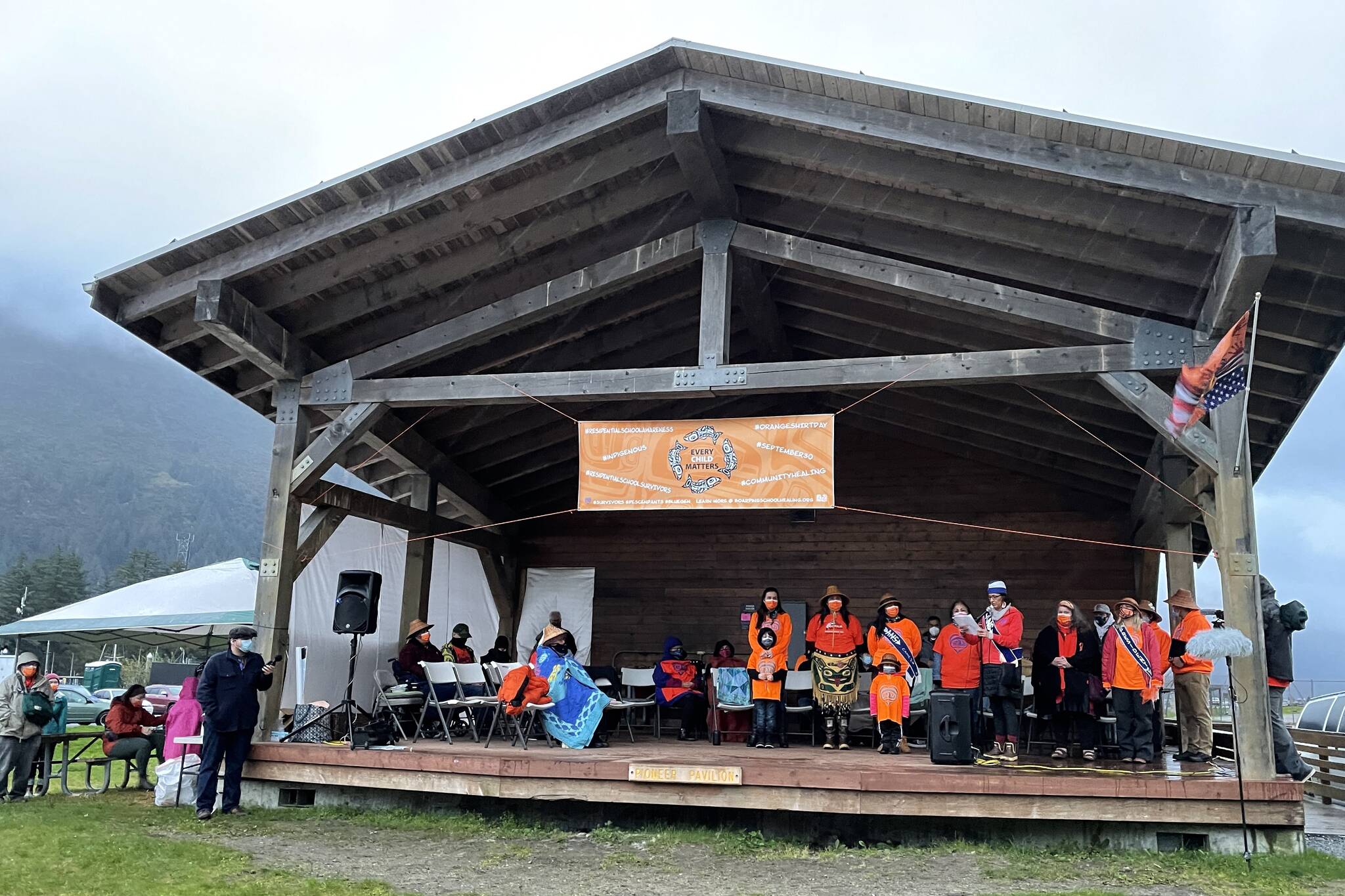By Susan Montoya Bryan
Associated Press
ALBUQUERQUE, N.M. — The federal government has a responsibility to Native American tribes, Alaska Native villages and Native Hawaiian communities to fully support and revitalize education, language and cultural practices that prior boarding school policies sought to destroy, U.S. Interior Secretary Deb Haaland said Wednesday.
Haaland testified before a U.S. Senate committee that is considering legislation to establish a national commission on truth and healing to address intergenerational trauma stemming from the legacy of Native American boarding schools in the United States.
As the first and only Native American Cabinet secretary, Haaland’s voice cracked with emotion and her eyes welled as she addressed the committee.
Haaland, who is from Laguna Pueblo in New Mexico, said the forced assimilation that happened over a century and half through the boarding school initiative was both traumatic and violent. She noted she herself was a product of those policies as her grandparents were removed from their families and sent to boarding schools.
“Federal Indian boarding school policy is a part of America’s story that we must tell,” Haaland said. “While we cannot change that history, I believe that our nation will benefit from a full understanding of the truth of what took place and a focus on healing the wounds of the past.”
Tribal leaders and advocates from Maine to Alaska and Hawaii joined Haaland in voicing their support for a national commission, saying it would offer a path for many to have their personal stories validated.
The dark history of Native American boarding schools — where children were prohibited from speaking their languages and often abused — has been felt deeply across Indian Country and through generations.
Starting with the Indian Civilization Act of 1819, the U.S. enacted laws and policies to establish and support the boarding schools. The goal was to civilize Native Americans, Alaska Natives and Native Hawaiians. Religious and private institutions often received federal funding and were willing partners.
Haaland’s agency in May released a first-of-its-kind report that named more than 400 schools the federal government supported to strip Native Americans of their identities. The study has so far identified at least 500 children who died at some of the schools, but that number is expected to reach into the thousands or tens of thousands as research continues.
The department also is planning a yearlong tour to gather stories of boarding school survivors for an oral history collection. Haaland said one of the first stops will be in Oklahoma.
As for the legislation to create a truth and healing commission, it had its first congressional hearing last month. It’s sponsored by two Native American U.S. representatives — Democrat Sharice Davids of Kansas, who is Ho-Chunk, and Republican Tom Cole of Oklahoma, who is Chickasaw.
Massachusetts Democrat Elizabeth Warren is leading the effort in the Senate.
The proposed commission would have a broader scope than the Interior’s investigation to seek records with subpoena power. It would make recommendations to the federal government within five years of its passage, possible in the U.S. House but more difficult in the Senate.
Work to uncover the truth and create a path for healing would require financial resources in Indian Country, which the federal government has chronically underfunded.
Kirk Francis, chief of the Penobscot Indian Nation in Maine, said it would be difficult to quantify the cost of the cultural damages from the boarding school era. But he said congressional leaders should be having conversations each year as they set funding priorities, to ensure tribal programs are adequately supported.
He said any work by a national commission would inevitably open old wounds.
“It will be a difficult time, and the communities are going to have to be able to support that historical trauma through treatment. Resources are going to be a huge part of that success,” he said.
Norma Ryūkō Kawelokū Wong Roshi, a policy official for former Hawaii Gov. John Waiheʻe, said the work by the Interior Department and any future commission should be looked at as steps in a process that will span generations.
“This is not one and done,” Wong said. “What took hundreds of years to tear to the point of breaking cannot be repaired, let alone propel us toward a more thriving future over the course of a few studies, reports and hearings. There is work to be done, and it can be fruitful.”

